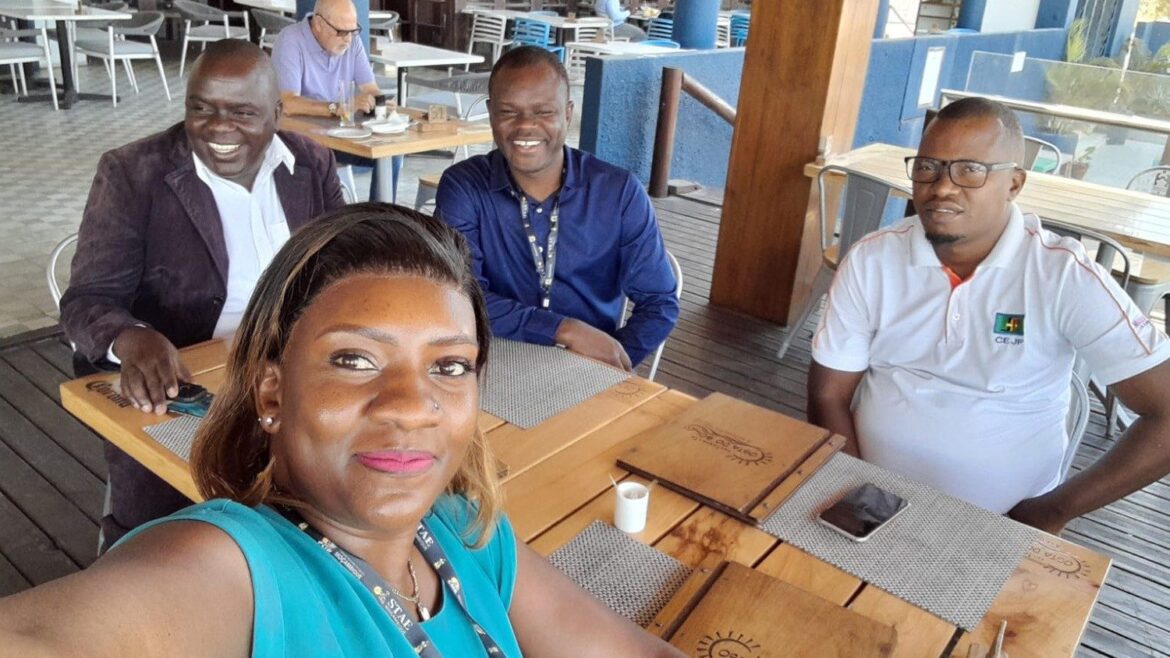
The Episcopal Justice and Peace Commission recently issued the document, “A Political Guide for National Dialogue,” which contains concrete proposals for reforms of the State, the electoral system, natural resource policies, economic inclusion, and national reconciliation, aiming to strengthen democracy, social justice, and lasting peace in Mozambique.
Cremildo Alexandre – Nampula
The Catholic Church in Mozambique, through the Episcopal Justice and Peace Commission, launched the Political Guide for National Dialogue, a civic and political education document that aims to prepare citizens and Christian communities to actively participate in the inclusive national dialogue process. The document proposes a set of fundamental reforms to consolidate unity, peace, and sustainable development in the country.
Presented in the context of the Jubilee of the Holy Year 2025 and the celebrations of the 50th anniversary of national Independence, the guide highlights five priority areas for reform: the State, the electoral system, natural resource exploitation, economic inclusion, and the project of reconciliation and national unity.
State reforms
The Church proposes limiting the powers of the President of the Republic in appointing heads of key sovereign bodies and recommends that judges be elected among their peers. It also advocates for the elimination of the position of Secretary of State in provinces, which is considered redundant and burdensome for the nation’s annual budget.
Electoral system
The document recognises that Mozambique has adequate electoral laws but poorly implemented, resulting in mistrust and post-electoral conflicts. Among the proposals, the Church defends depoliticizing the National Electoral Commission (CNE) and the Technical Secretariat for Electoral Administration (STAE), the use of electronic voting to reduce fraud, and the selection of Polling Station Members (MMVs) based on honesty, training, and a demonstrated sense of responsibility. “The electoral process is a patriotic act,” the guide emphasises, calling for severe punishments for cases of result manipulation.
Natural resource exploration policy
The Church points out serious challenges in managing natural resources, such as weak law enforcement, corruption, lack of transparency, and poorly managed resettlements. It proposes defining resources as strategic, with stable and consensual policies in Parliament. It also suggests strengthening oversight institutions, ending unnecessary tax incentives, and fairly redistributing revenues to improve the living conditions of local communities, including access to water, roads, and electricity.
Economic inclusion
To address inequalities and promote opportunities, the Church advocates strengthening policies that empower youth and women in income generation, supporting the informal sector, vocational education, easier access to credit, and technical training programmes.
According to the document, these measures can reduce poverty and increase everyone’s participation in the benefits of economic growth.
Reconciliation and national unity
The guide further recognises that, despite agreements such as the Rome Accord (1992) and the Final Peace Agreement (2019), the country still bears wounds from conflicts and political exclusion. The Church proposes building a collective memory based on truth, exercising forgiveness and mutual listening, promoting a culture of dialogue and trust, and changing mentalities to value differences while combatting prejudices.
It also advocates for the revision and rigorous monitoring of the Technical Committee for National Dialogue, ensuring sincerity, seriousness, and honesty from all its members, from the national level to local communities.
Final note and exhortation
In the final part of the Political Guide for National Dialogue, the Catholic Church calls for widespread dissemination of the document and active participation of all faithful in the dialogue process.
“This Guide needs to be known by all Christians and men and women of good will. It needs to reach all parishes and communities in our country. It needs to be a tool in each of our hands for effective participation in the dialogue process.”
The Episcopal Justice and Peace Commission encourages diocesan and parish committees to organise training workshops around the guide and to mobilise the faithful to participate in the different stages of the inclusive national dialogue — from public meetings to thematic and virtual sessions.
The document also emphasises that understanding its contents “has an instrumental value,” serving solely to enable citizens to actively contribute to this process of national reconciliation.
The Church recommends that Diocesan Justice and Peace Committees maintain regular contact with the Episcopal Commission and share their experiences and levels of integration into the dialogue, to closely monitor the progress of this initiative considered “so important for the country’s future.”
With this exhortation, the Catholic Church in Mozambique reaffirms its commitment to peace, justice, and the common good, inviting all Mozambicans to become protagonists of a new era of hope and fraternity.

